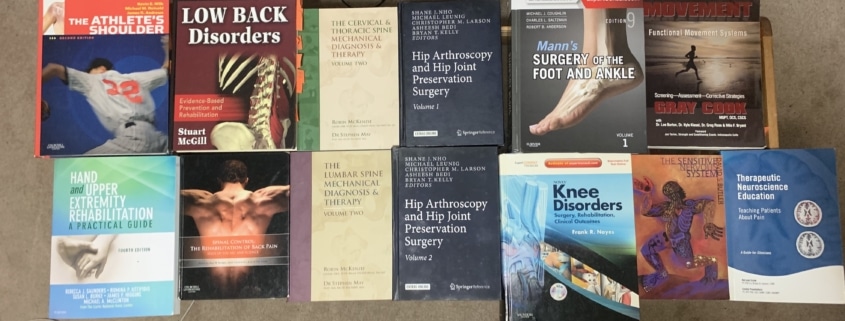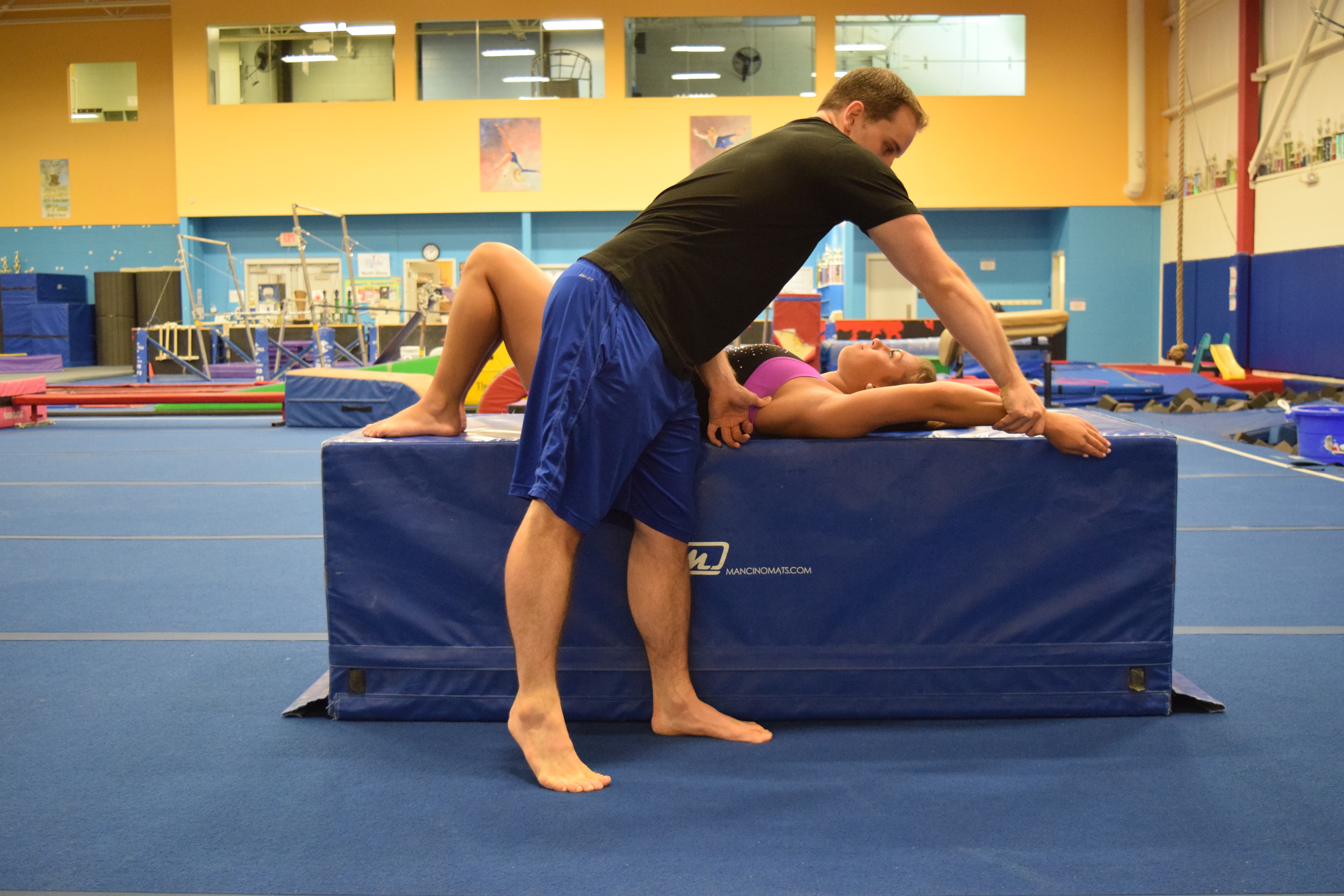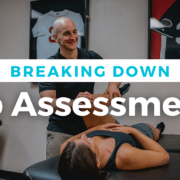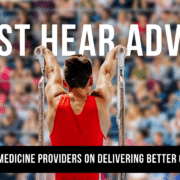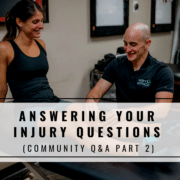The 15 Books I Would Buy First If I Was A New PT/AT/Chiro Graduate Again
I’ve been getting a ton of messages from soon to be / new graduates asking for advice. Mostly Physical Therapy, Athletic Training, and Chiropractic students.
I’m super flattered by this. I’m also happy to offer some guidance or insight. The most common response I give is
- Master each joint
- If a patient 7 days out of a complicated rotator cuff repair came in, would you feel comfortable?
- If a patient with nonspecific low back pain who hurts is back deadlifting and is super active came in, would you feel comfortable?
- If a patient with no specific injury came in looking for a preventative, S&C, and wellness program came in, would you feel comfortable?
- And more importantly, if you weren’t comfortable would you know where to go to learn or get help?
- Then learn movement-based assessments to tie things together.
- Not one system, a range of systems then make your own approach. I have taken courses and studied from SFMA, McKenzie, Mcgill, CPS, PRI, FRC and more. I now use Champion’s System and my own combined.
- Be willing to sacrifice to get good mentors.
- For the last 5 years, I have been driving 1 hour each way to Champion because Mike Reinold, Lenny Macrina, and the staff are some of the best in the world. I literally still ask them questions about cases. I asked Lenny about a UCL repair case last week just to make sure I was up to date with his approach to protocols.
- Learn basic strength and conditioning knowledge/hands-on skills
- Both theory/science/programming and actual coaching/human interaction/cuing on the fly. You can’t be a geek and not know how to people. But you need to know your stuff for the science behind why you are making decisions.
- Then study the geeky side of big picture stuff
- Sports or activities for biomechanics, pain science ideas, injury mechanisms, and so on etc. Once you master the basics, you can start thinking far out there. I’ve done this in studying epigenetics, stress neuroendocrinology, mechanotransduction, BFR, dry needling, workloads, movement variability, and more.
- As you are doing this, donate your time to the niche area you love or want to work in
- Gymnastics, baseball, ACL rehab, concussions, etc. Be nice and do good work with clients you get, and build your network for more word of mouth.
And lastly, but most importantly, be patient and be willing to sacrifice. There is no short cut. If you want to be a great medical provider, you have to make sacrifices with your time, finances, and energy away from more fun things and into work.
It Won’t Get Easier, and No One Is Coming To Save You 🙂
There is nothing wrong with time to yourself and doing things you love to recharge your batteries to not burn out and be in a good headspace. I do that every week.
But the fact of the matter is, if you want to be really good, know a lot, have clinical skills to help patients, and not feel stressed out at work, you likely need 2 hours less of Netflix or social media so you can get another hour of sleep and wake up early to read/practice for an hour every morning.
I’ll just be honest – since graduating, I have worked 3 jobs (PT, coaching gymnastics, running SHIFT) averaging 70-80 hours and 6-7 days per week. I’m not saying you have to do this to be a good medical provider. And you don’t have to run a business at all. The point remains: your goals will take more work than you expect, longer than you want, and will come with a lot of discomforts. But, it will be worth it. Nothing worthwhile and meaningful ever comes easy.
Also on the honesty scale, I about $12,000 on continuing education my first 2 years out of school. I averaged easily 2-3 hours per day of reading, courses, learning, and so on per day for those 2 years. I took a lot of courses too, but that will be another blog post for the top recommendations. High quality isn’t cheap. But just worry about you in a “me vs me, for me” mentality. Block out the noise of what other people are buying/doing, and tunnel vision on your goals.
Looking back, I did some things well and many things not so well. One of the good things was being absolutely obsessed with continuing education, courses, learning, books, and improving my academic/clinical skills.
To be frankly honest, I did this because I realized how much I didn’t know. This was especially true related to mastering each joint. it was also true in relation to not getting swept up in social media/online discussions, instead of putting in massive amounts of work each week to read research and books for myself.
Again, discussion and social media is a great networking and idea tool. I literally run a company based off it for marketing and education.
But is not peer-reviewed, scientific, medial literature with ideas that stand the test of time and have extensive evidence. Put your ego on the shelf and admit you have lots of work to do for learning.
Also, be willing to put down your Instagram megaphone and pick up a continuing education shovel.
So What Books Should I Read as a New Grad?
The most common question I get is what books I would recommend reading in the first 3 years. So, I looked through everything and made a list of what I would go back and read first.
I kid you not, I have read most of these cover to cover once or twice, and the others I have put a significant dent in.
And before you ask, yes they are difficult. But so is being a good medical provider. They say you spend about 30% of your life working. So, if I have a say in the matter I would like that 30% to be fun because I know what I’m doing and feel good about my skills to do it. Plus, the more you know the more you can help people. And that’s great.
And yes, they are expensive. I had to live thin to afford them plus courses. Discomfort and sacrifice is the price of admission to a meaningful life. $50 here on being smart about groceries and meal prepping/cooking at home vs eating out 4x/month. $50 here on one less night partying. Christmas and Birthday presents. Do I really need 8 pairs of shoes, or does 4 work? Do I really need 5 TV/movie subscriptions, or will 2 do? Do I need 4 vacation trips a year, or can I be okay with 2? $50 – $100 from each of those things got me a $600 text hip textbook.
And yes, they are time-consuming. Many hours of early mornings. Getting 5 pages in when a patient no shows instead of sitting around. Staying in on a Friday instead of going to the bar, and giving up half my weekends to read. Putting headphones in my desk so I can focus at the clinic when it’s busy. They all add up.
Here is a list of the most impactful/recommended books (in no particular order) with links to Amazon
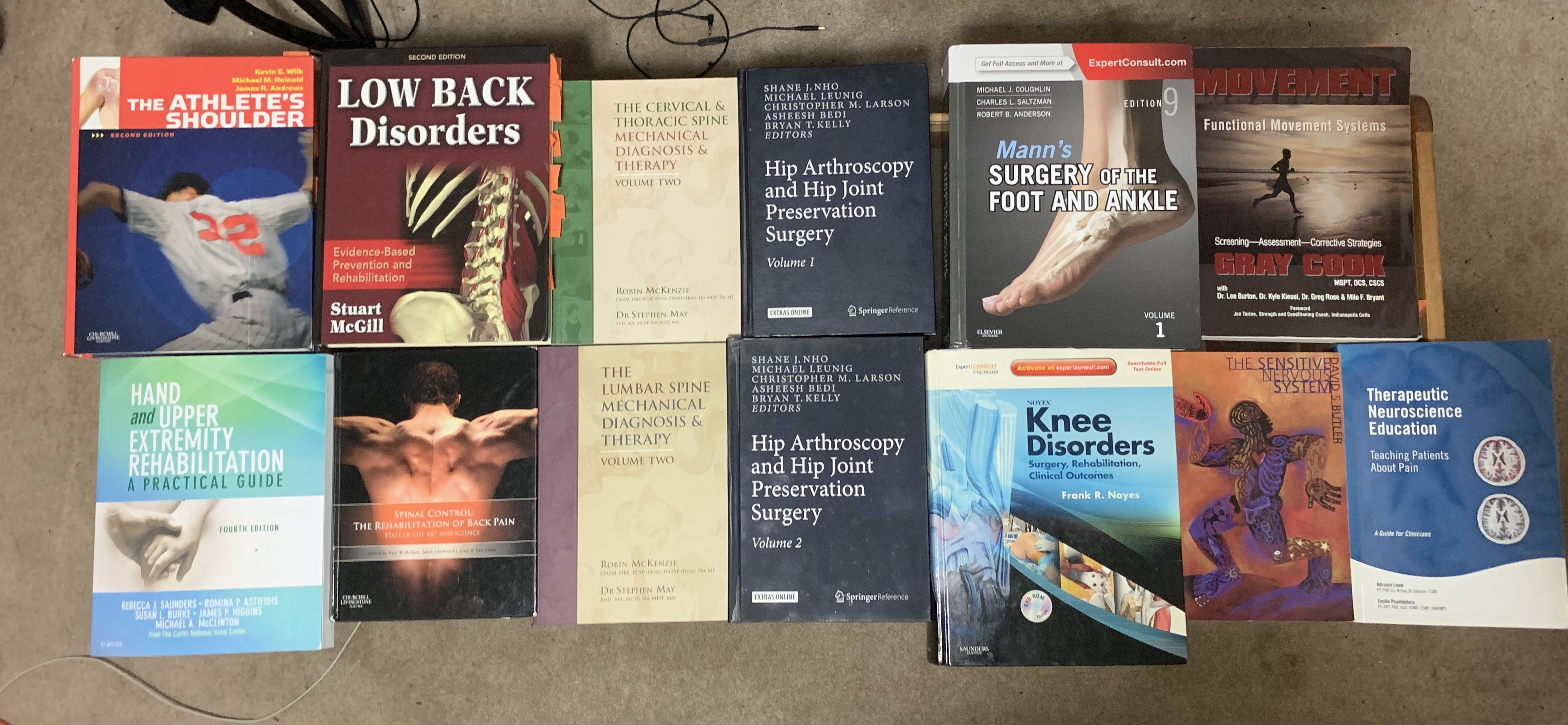
- The Athlete’s Shoulder – Wilk, Reinold, and Andrews
- Low Back Disorders – McGill
- Spinal Control – Hodges
- Hand and Upper Extremity Rehabilitation – Saunders et al
- The Lumbar Spine Mechanical Diagnosis & Therapy Vol 1/2 – McKenzie
- The Cervical Spine Mechanical Diagnosis & Therapy Vol 1/2 – McKenzie
- Hip Arthroscopy and Hip Joint Preservation Surgery Vol 1/2 – Nho et al
- Mann’s Surgery of the Foot and Ankle – Coughlin et al
- Knee Disorders – Noyes
- Movement – Cook
- The Sensitive Nervous System – Butler
- Therapeutic Neuroscience Education – Louw
- Strength and Conditioning: Biological Principles and Practical Applications – Cardinale
- Essentials of Strength Training and Conditioning – Haff
- The Physiology of High Performance – Digby and Sale

